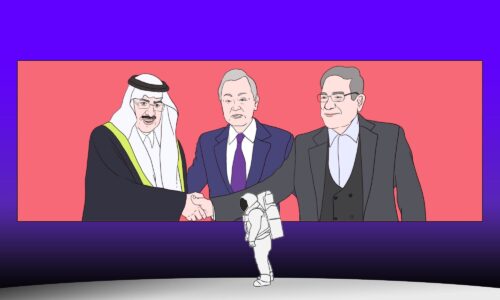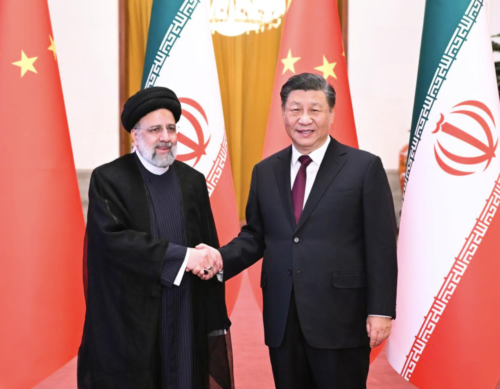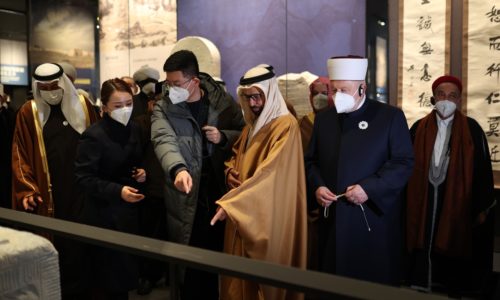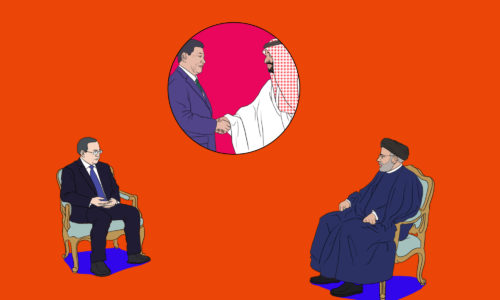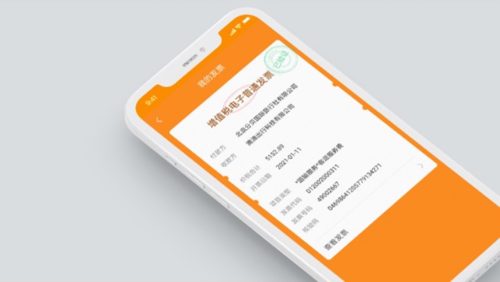Xi heads to Saudi Arabia, as Washington grows anxious
Saudi Arabia has confirmed that Xi Jinping will make a two-day visit to the kingdom to meet with a number of Arab leaders, as Beijing looks to strengthen ties in the energy-rich region.

Chinese President Xí Jìnpíng 习近平 will visit Saudi Arabia on December 7–9 to attend multiple summits with Gulf Cooperation Council (GCC) members and leaders of other Arab states, the kingdom’s news agency SPA announced today, in a sign that Beijing is seeking to boost ties in the energy-rich region while Washington has pulled away.
Xi’s two-day visit, his first trip to the kingdom in six years, is expected to bring in dozens of agreements with Arab counterparts “covering energy, security, and investments,” Reuters reports.
- Saudi Arabia is the world’s biggest crude oil exporter and China’s top oil supplier: Chinese imports totaled 73.54 million tons (1.77 million barrels a day) in the first 10 months of 2022, or 18% of China’s total crude oil purchases, Chinese customs data showed.
- China is Saudi Arabia’s largest trading partner: Bilateral trade totaled $87.3 billion in 2021, with Chinese exports to Saudi Arabia reaching $30.3 billion, while imports hit $57 billion.
Aside from Saudi Arabia, China has also emerged as a significant trading partner for many other GCC countries, including Bahrain, Kuwait, Oman, Qatar, and the United Arab Emirates (UAE), which depend on the energy trade to diversify their economies.
- China’s Belt and Road Initiative has created over 200 major energy and infrastructure projects in the Gulf with 20 Arab countries and the Arab League, as it expands its presence in the Middle East.
Earlier last week, the Chinese Foreign Ministry released a lengthy report (in Chinese) on China-Arab cooperation in anticipation of Xi’s visit, in which it outlined its guiding policies, pledged to strengthen ties, and repeated Beijing’s position on conflict zones in the region.
- SPA also published a “historical account” detailing eight long decades of close Saudi-Chinese relations.
The report denied that China intended to fill any “power vacuum” left by the U.S., at a time when Riyadh is at odds with crucial partner and longtime ally Washington over oil resources and Russia’s war in Ukraine.
- The United States accused Saudi Arabia of pressuring OPEC+ members on a vote to slash oil production in October in an effort to “stabilize” prices, despite strong protests from Washington.
- In July, U.S. President Joe Biden said on a visit to Riyadh: “We will not walk away and leave a vacuum to be filled by China, Russia, or Iran…the U.S. is not going anywhere.”
Meanwhile, Saudi Arabia and its allies in the Gulf have treaded carefully between the two superpowers: “We build bridges with people; we don’t see one as exclusive of the other,” Saudi Minister of State for Foreign Affairs Adel al-Jubeir told CNBC in July.
See more:
- Why the Persian Gulf is China’s “New Africa” / China-Global South Project (paywall)


